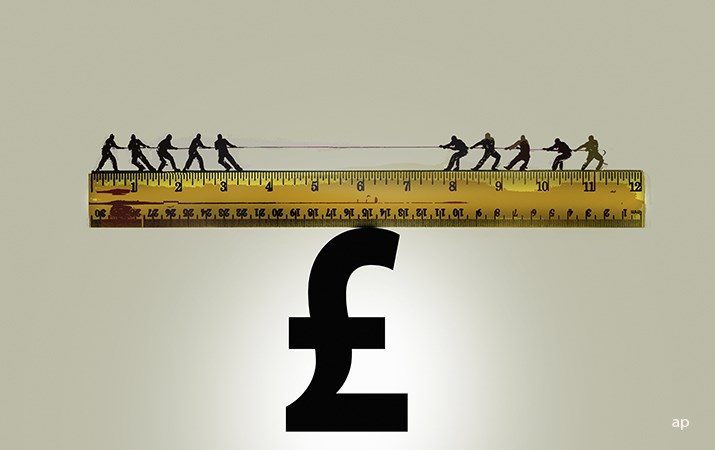
When I hear the term “SMART goals” it makes me think of management meetings or gives me awful flashbacks to school. I’d never really considered before that they could be a useful tool for coming up with a savings plan.
Why is that? Because us humans are not very good with vague plans. It’s why movements like Dry January, Veganuary and Stoptober gain so much traction, because there are very clear parameters. If you just said: “OK I’m going to completely cut out food or alcohol for I don’t know how long,” you’d likely not last the week, let alone the month.
And that gets me thinking about saving for retirement, which I believe is undoubtedly the hardest thing to save for. I logically know I’d like to retire one day and I that I will need money to get me through that period of life. But when will I retire, how much will I need? These are questions I don’t know with any degree of certainty the answer to. And that makes me less interested in actually doing something about it.
It’s why people find it much easier to save for a house deposit: you know how much you need and when you need it by, and you get a tangible reward at the end of it. Retirement planning has none of those features.
So could SMART goals be the answer? For the uninitiated, these are when we set a target that is Specific, Measurable, Adjustable, Realistic, and Time-bound.
So rather than say: "I want to save for retirement", you say: I want to save enough money to ensure a good standard of living when I retire (Specific). I anticipate I will need to save £X (Measurable) but I will review this every couple of years (Adjustable) and that involves saving £X into my workplace pension (Realistic) with the aim of retiring at age XX (Time Bound).
It doesn’t sound too scary when you put it like that, does it?
Of course, not everything has to be quite so long-term and you may have spotted the new video series we’ve launched this week to help with shorter-term finance issues. In the Financial To-Do List we’ll talk you through which aspects of your finances you should be focusing on each month of the year. January isn’t a fun one, I’ll be honest, as it involves self-assessment tax returns. But hopefully by homing in on a few specific tasks each month you can stay on top of your finances without it being too much of an ordeal. Well, that’s the plan anyway.
Regrets, I've Had a Few
Do you have any investment regrets? I felt for the reader this week who revealed she’d missed the boat on Asos. It seems almost laughable to think now that she had wanted to buy the stock when the online fashion giant’s shares were 2.5p but decided not to invest after they’d climbed to 3.5p, thinking she'd missed the rally. Shares eventually peaked at around £75 in March 2018.
Missing the boat – or just plain jumping on the wrong boat – are things that investors choosing individual stocks may feel more acutely than those who use funds to access the stock market. If you’re tracking an individual share price, it’s all too easy to see the one that got away. Or the one that crashed and burned with your money still in it.
Still, I’m sure most of us have an investment regret or two. My own regret is not investing more. That’s not to say I have heaps of cash lying about, but I opened up my Stocks and Shares Isa in 2013 with a small sum of money and then didn’t add anything more to it for years, when really I should have been regularly investing the whole way through.
While I’ve enjoyed some successes with my funds of choice over the years I’m acutely aware that my gains could’ve been much greater if I’d been topping up my holdings on a regular basis.
That's not a sexy “I missed Asos” story, but it might be one that a lot of us are guilty of.
A New Dawn for Dividends?
Last year was a bad one for dividend investors, but maybe not as bad as we thought, it turns out. I was surprised to see a fairly sizeable list of companies that have managed to grow or maintain their payouts every year for a decade, even despite the Covid-19 crisis. In fact, some companies have increased their dividends for an incredible 20 years. And if my colleague Dan Lefkovitz is to be believed, the outlook is far less gloomy for the year ahead. So maybe we're not out of lockdown yet, but dividends might just be.



























